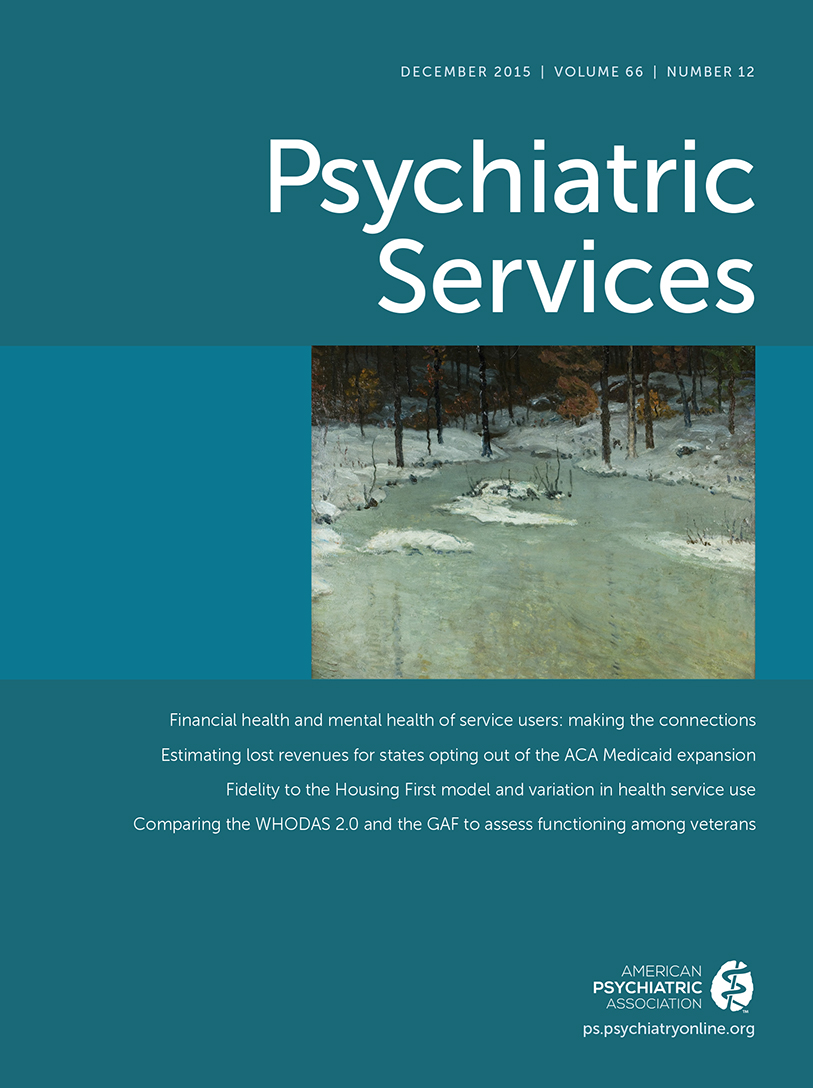Abstract
Objective:
Japan has the largest number of psychiatric beds in the world and has been in the process of deinstitutionalization since 2004. The majority of psychiatric inpatients are elderly long-term patients, who are at risk of homelessness after they are discharged. There is little information about homeless people with mental illnesses in Japan, and the aim of this study was to describe characteristics of people with a mental illness in homeless shelters in Tokyo.
Methods:
A face-to-face survey was conducted from December 2012 to March 2013 by the staff of a nonprofit organization (NPO) that helps socially isolated persons. Of the 1,056 people who received help during the study period, 684 completed the survey.
Results:
Eighteen percent of the 684 survey participants had a mental illness. Of the 210 individuals who lived in shelters, one-third had a mental illness. The mean age of shelter users with mental illness was 64.9; they tended to be referred from hospitals, and their mental well-being was poorer than other NPO service users in the study. Among the service users with mental illness, those living in shelters were older than those living in the community and more likely to have a history of trouble with alcohol, poor family relationships, and impaired instrumental activities of daily living.
Conclusions:
Unmet mental health needs were noted among discharged hospital patients living in Tokyo homeless shelters. An integrated and community-based support system with more effective health care delivery, including critical time interventions, is needed.



